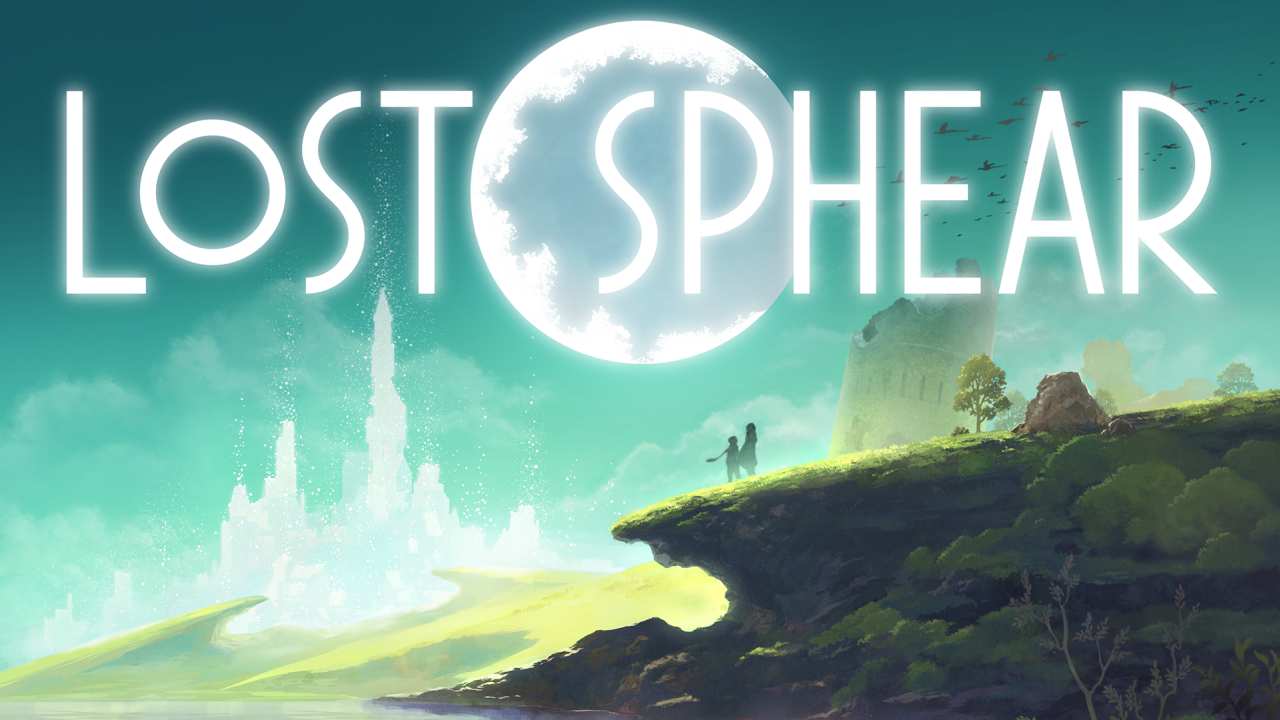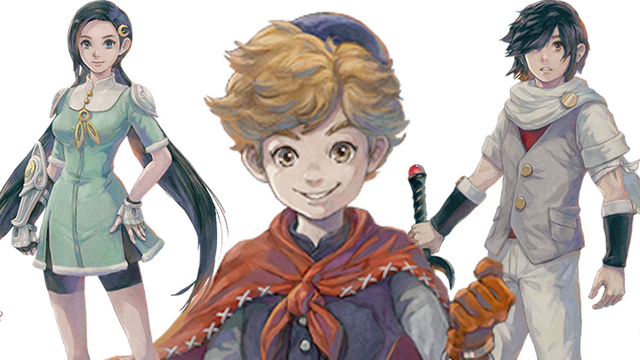If there’s one video game genre that I’ve spent way too much time playing, it’s the Japanese role playing game. Me and JRPGs go way back, from Final Fantasy and Dragon Warrior on the original NES through the latest and greatest available on modern consoles today, and I don’t see myself growing out of this any time soon.
That’s why I was so excited to get my hands on a copy of Lost Sphear for the PC. Developed by Tokyo RPG Factory, the folks behind the critically successful I am Setsuna, and published by JRPG juggernaut Square-Enix, I had high hopes that this new title would scratch my itch. After all, there’s nothing like a good JRPG.
Unfortunately, Lost Sphear is nothing like a good JRPG.

So much potential. Courtesy Tokyo RPG Factory
A Good Start
At first blush, Lost Sphear looked to have everything a classic JRPG needed to be a hit – a lush, anime-inspired art style, a setting that combines high fantasy magic with Victorian-era steampunk technology, dialogue that’s so poorly translated to be amusing, a cast of inexplicably battle-hardened teenage protagonists with mysterious pasts – heck, it even had a weird, misspelled-on-purpose title that was almost a pun but not really. Truth be told, Lost Sphear does have a lot going for it when it comes to both combining the visual splendor of full HD graphics and the retro throwback aesthetic style of the heyday of console JRPGs, but other than that there’s not much else.
The core conceit behind Lost Sphear is that that the world is suffering from a strange plague where people and locations suddenly turn white and disappear, leaving an empty void in their place. The game’s main character, Kanata, somehow has within him the power of reclaiming lost memories and using them to restore those that are lost, and the story of Lost Sphear revolves around Kanata and his friends seemingly drawn into a worldwide conflict because of his ability.
To declare the plot direction of Lost Sphear as derivative is unnecessary – it’s almost a tradition to have a JRPG’s storyline feature a teenage male protagonist with a mysterious past that lives in an idyllic village but gets sucked into the wider world because of unique power or ability. It’s simple, iconic, and universal, as this helps the player identify with the main character as their surrogate. Yet at the same time there this narrative choice has been used so much it has become a parody of itself in popular culture, and its inclusion here without any effort subvert or reinvent this overused trope makes it hard to become invested in whatever direction Lost Sphear’s story takes, relegating it to “just another JRPG” status.
Dying to Remember

Look how original and unique we are! Courtesy Tokyo RPG Factory
There is something that the developers of Lost Sphear did that almost, but not quite, salvages the otherwise nondescript nature of the game – namely, the memory restoration mechanic. Kanata recovers memories as loot from combat or from speaking with people who remember a lost person, place, or thing, literally lifting these memories from their conversations into solid objects. Collect the right types of memories in a sufficient number, and there’s a chance Kanata can bring back something – or someone – that became lost.
Solving the mystery of what’s causing these losses to occur, of course, the crux of the main storyline. Having to reclaim memories in order to progress in this storyline, however, does little more than ensure that the game remains as linear as possible, as it’s impossible to do much exploration of areas that are still lost in amorphous white mists. While this hearkens back to the heavily-railroaded plots and storylines of many classic JRPGs, it also, strangely, flies in the face of the exploration aspects of these same games that Lost Sphear is supposedly a tribute to.
Too Much of a Bad Thing
It’s a shame, really, because the mechanics of providing a player with the ability to rebuild the game world and its denizens by restoring lost memories is unique and innovative. However, with this being the only reason to stick around and suffer through the rest of Lost Sphear, it’s simply not enough to keep you interested. In fact, even an engaging combat system that prioritizes character positioning in order to strategically dominate the battlefield doesn’t provide enough enjoyment in the end to justify sinking the dozens of hours necessary to complete the game.
In the end, Lost Sphear’s high level of production values when it comes to graphics and sound and its relatively robust combat simply isn’t enough to salvage an overly-linear plot, tired setting, lazy characterization, and poor language optimization. Ironically, these issues are perhaps the most iconic ones when it comes to classic JRPGs, making Lost Sphear not so much a love letter to classic console gaming as it is a harassing text message sent by an ex-lover.
Forgetting Lost Sphear
On paper, Lost Sphear had a lot going for it. The title’s high production values are evident in its eye-catching, classic art style depicted in lush 1080p and its nostalgic, early 2000’s synth pop soundtrack, and the overall polish and tightness of the game’s combat system. However, while the procedural elements of Lost Sphear are excellent, it’s the substantive nature of the title – its plot, storyline, characterization, and dialogue – that keep it from being a game that could have been great but, sadly, falls flat. For a game that revolves so heavily around the nature of memory, Lost Sphear simply isn’t memorable.
Lost Sphear is out now, available on PS4, Nintendo Switch, and for PC. Don't say I didn't warn you.
Like what you've read? Don't forget to upvote and resteem!

That's a shame, it's got the aesthetic down so well. Although I can tell by looking a it that you are probably right, and it's likely a pretty hollow experience.
Downvoting a post can decrease pending rewards and make it less visible. Common reasons:
Submit
I had such high hopes! It's lovely to look at and has a great soundtrack - made me think of what a high-res remake of Chrono Trigger might be like. But it ain't Chrono Trigger. Hell, it ain't even Chrono Cross.
Downvoting a post can decrease pending rewards and make it less visible. Common reasons:
Submit
I'm so disappointed to hear this about the game. Thank you for saving me some money though.
Downvoting a post can decrease pending rewards and make it less visible. Common reasons:
Submit